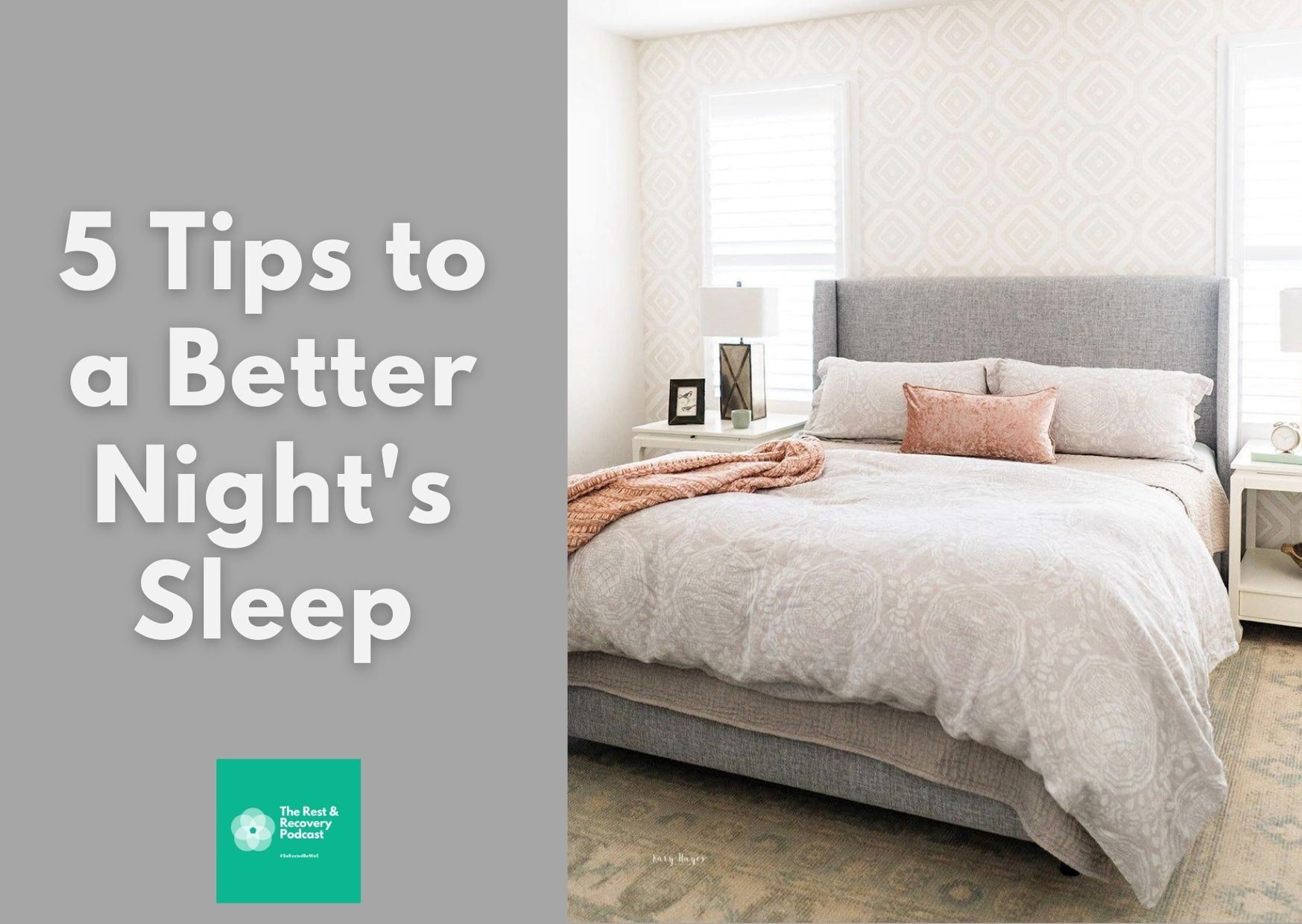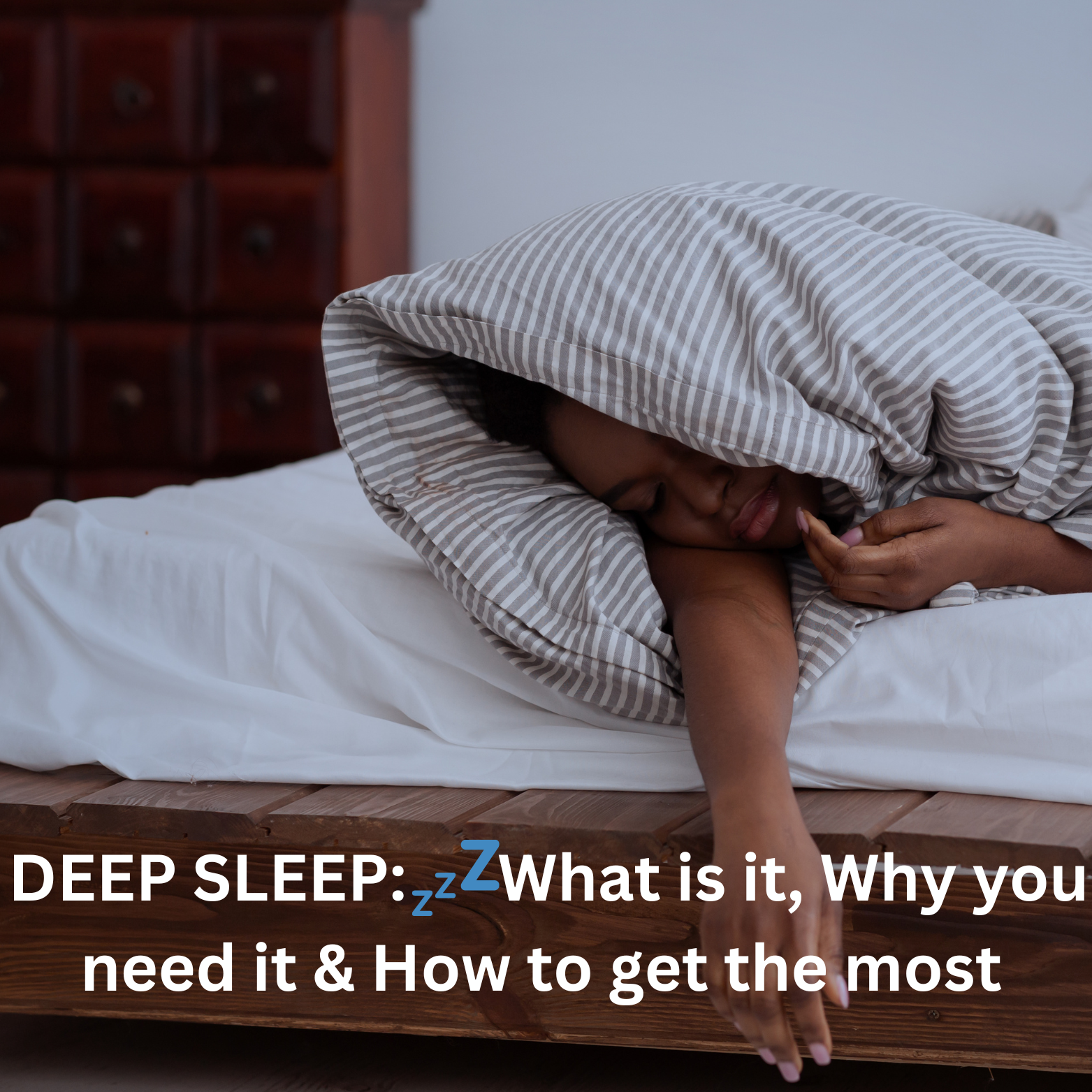5 Tips to a Better Night’s Sleep
Never underestimate the power of a good night’s sleep.
Getting enough uninterrupted sleep is essential, both for your mental and physical health. It’s just as important as regular exercise and proper nutrition.
Fall short on sleep (we’re talking about less than 7 hours a night) and it can take a serious toll on your daytime energy, productivity, emotional balance — even your weight.
If you’re not getting enough sleep, you might:
- Have difficulty making decisions and solving problems
- Find yourself dozing off during daily activities
- Make mistakes and take longer than usual to complete tasks
- Feel irritable, emotional, or overwhelmed consistently
- Have difficulty learning or remembering things
Sound familiar? You’re not alone. Believe it or not, 1 in 3 American adults have trouble sleeping — and it stands to reason.
Modern-day living in the United States and many other countries doesn’t always embrace the necessity for adequate sleep. In fact, it glorifies the daily grind that leads to sleep deprivation.
But your mental health, physical health, relationship health — it’s all completely flipped when you’re not getting enough rest. We need to shift the conversation away from praising that 2 am bedtime and 5 am wake-up. Lack of sleep is something that requires attention from each individual because, when not taken care of, short- and long-term consequences from burnout can result.
Fortunately, there are steps you can take to facilitate a better night’s sleep, both during the day and at night. Let’s take a look.
Your Daytime Routine
Think about all the factors that can interrupt your sleep. From work stress and family responsibilities to unexpected challenges like illness, it’s no wonder quality sleep is sometimes elusive.
“Sleep isn’t something that just happens when you fall into bed,” says Michael Breus, Ph.D. and author of Good Night: The Sleep Doctor’s 4-Week Program to Better Sleep and Better Health. “Your body gets primed for it all day.”
For better or for worse, this is the truth. But fortunately, you can quickly adopt daytime habits that encourage better sleep.
Tip #1: Tap Into Your Body’s Natural Sleep Cycle
Tuning into your body’s natural sleep-wake cycle, or circadian rhythm, is one of the most important strategies for sleeping better. The more regular this routine, the more you’ll wake up feeling refreshed and energized.
To do this:
-
-
- Try to go to sleep and get up at the same time every day. A consistent routine helps set your body’s internal clock (aka circadian rhythm) and optimizes the quality of your sleep.
- Avoid sleeping in — even on weekends. The more your sleep schedules differ, the more you’ll continue to experience jetlag-like symptoms.
-
- Stay alert after dinner. If you tend to fall asleep too early, you may find yourself waking up in the middle of the night. Instead, get off the couch and do something mildly stimulating after dinner, such as washing the dishes or getting your lunch ready for the next day, to keep yourself awake before bedtime.
Tip #2: Prioritize Exercise
It’s a fact: People who exercise regularly (the more rigorous the better) tend to feel less tired during the day and sleep better at night.
Regular exercise also improves the symptoms of insomnia and sleep apnea and increases the amount of time you spend in the deep, restorative sleep stages.
Just remember to time your exercise right. Exercise speeds up your metabolism, elevates your body temperature, and stimulates hormone levels. This isn’t a problem if you exercise in the morning or afternoon, but too close to bedtime and it can interfere with sleep.
Tip #3: Pay Attention to What You Eat & Drink
Your daytime eating habits play a major role in how well you sleep, especially in the hours leading up to bedtime.
- Limit caffeine and nicotine. You might be surprised to know that caffeine can cause sleep problems up to twelve hours after drinking it! Similarly, smoking is another stimulant that can disrupt your sleep.
- Limit big meals at night. Try to make dinnertime earlier in the evening, and avoid heavy, rich foods within two hours of bed. Why? Eating affects insulin resistance, so eating too late makes your body work when it’s supposed to be resting and cleaning up the place. I like to say it’s like leaving your car running in the driveway; even though you’re not using it, it’s still burning fuel, which can make it difficult to sleep.
- Avoid alcohol before bed. While a nightcap may help you relax (initially), it often interferes with your sleep cycle and the quality of sleep, specifically your heart-rate variability (HRV). For more information on this, check out Episode 4 with Nick Lambe and Episode 31 with Elias Arjan. Sleep Trackers, such as BIOSTRAP, can help learn more about your personalized sleep cycle and HRV.
Your Nighttime Routine
If you’re having trouble falling — and staying — asleep at night, it might be time to reverse engineer your nighttime routine.
Take notice of what you’re typically doing an hour or two before bedtime. How are you spending that time? Are you racing through emails or scrolling through your phone? Or are you reading or taking a bath?
Those two scenarios have very different effects on your body and can impact the way you down regulate before bedtime.
Tip #4: Improve Your Sleep Environment
A peaceful bedtime routine sends a powerful signal to your brain that it’s time to wind down. Sometimes even small changes to your environment can make a big difference to your quality of sleep.
- Keep noise down. If you can’t avoid outside noise altogether, try masking it with a fan or sound machine. Earplugs may also help.
- Keep your room cool. A bedroom that is too hot or too cold can interfere with quality sleep. Studies show most people sleep best in a slightly cool room (around 65° F). You can set a timer on your thermostat such as NEST.
- Control light exposure. This is a BIG one. Keep your room dark with dark curtains or a sleep mask and avoid bright screens within 1-2 hours of your bedtime. (This includes your phone, TV, and backlit devices like Kindles or iPads.) When you need to be winding down, the blue light from these tech devices tricks your body into thinking it’s the middle of the day and starts revving up your cortisol levels. This exposure can be very subtle, but over time it will build up a sleep debt. (Debt in any form is NOT optimal.)
Tip #5: Build In Time to Wind Down
Developing a relaxing bedtime ritual can help you prepare your mind for sleep. This could include listening to a calming app on your phone, taking a warm bath, dimming the lights, or listening to soft music or an audiobook.
Problems relaxing at night can also stem from your daytime habits. The more overstimulated your brain becomes during the day, the harder it can be to slow down at night.
If, like most of us, you’re constantly interrupting tasks throughout the day to check your phone, email, or social media, your brain becomes accustomed to that stimulation, making it even harder to wind down at night.
Help yourself out by setting aside specific times during the day for checking your phone and social media and, as much as possible, try to focus on one task at a time. Trust me, your nighttime brain will thank you.
Next Best Action:
Like all things in life, better sleep habits are a long-term practice, not a quick fix.
Evaluate your current quality of sleep and, without judgment, take note of where you can improve.
Do your sleep habits align with your overall health and wellness goals? If not, what things could you start to slowly change to achieve better sleep?
You can do it all, but it doesn’t all have to be this week and it doesn’t have to be a linear journey. This process is personal to you and your individual needs, so focus on simply improving 1% consistently and you’ll eventually get to where you want to be.
The result?
Restful and rejuvenating sleep that will help you show up better to all the important things in your life. The relationships with your family, your friends, your coworkers — everything improves when you start to take better care of yourself. And that starts with sleep.
Thank you for reading about practical tips to apply today to reclaim your sleep and your overall health. You can find the podcast episodes covering sleep and sleep-related topics for adults and children alike on the website in the SLEEP section. Click HERE
The mission of The Rest & Recovery Podcast is help educate, equip, and empower you in your fitness pursuits, marriage, or as a parent to ensure your one life is lived well.
Please visit iTunes to subscribe, rate, review, and share with your friends who could benefit from this information.





